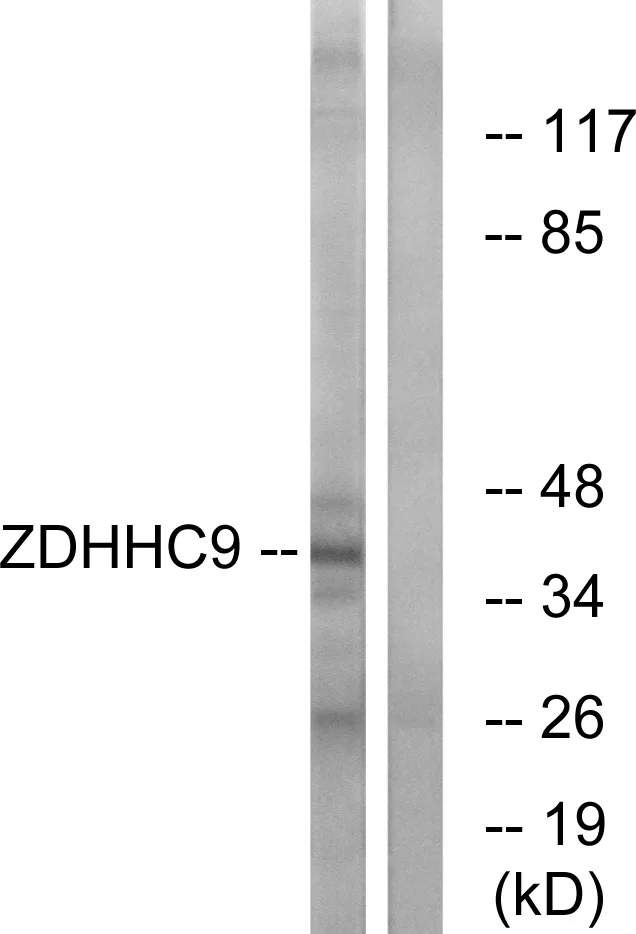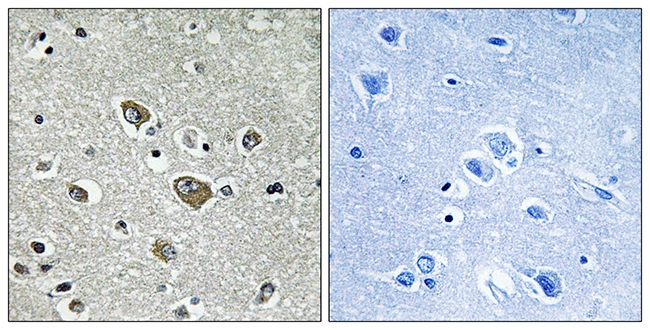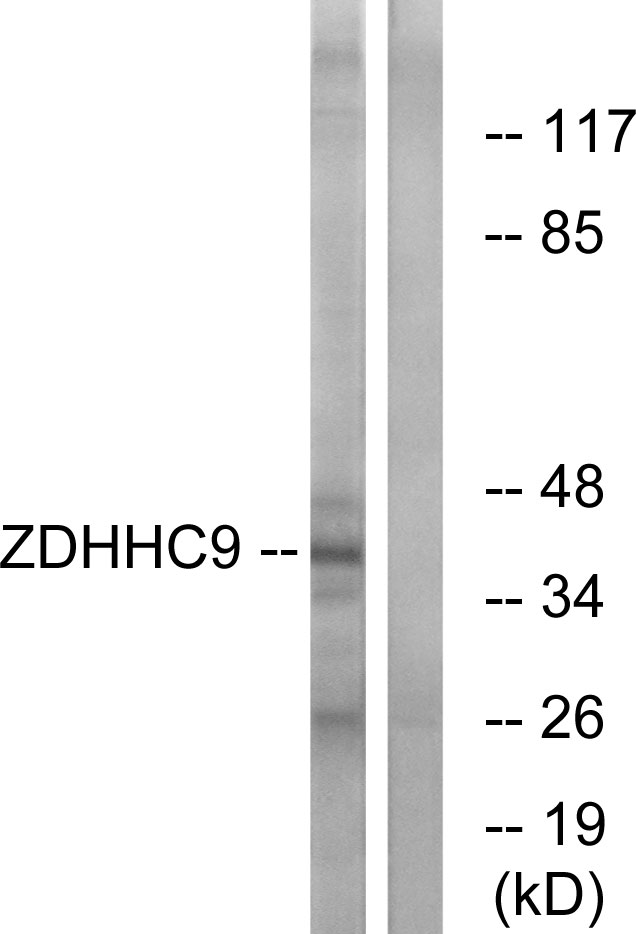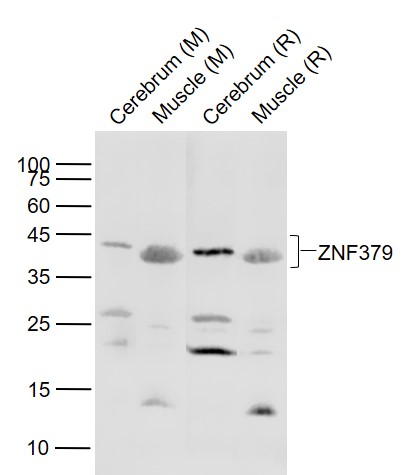
WB analysis of COLO cell lysates using GTX87571 ZDHHC9 antibody. The lane on the right is blocked with the synthesized peptide.
ZDHHC9 antibody
GTX87571
ApplicationsWestern Blot, ImmunoHistoChemistry, ImmunoHistoChemistry Paraffin
Product group Antibodies
ReactivityHuman
TargetZDHHC9
Overview
- SupplierGeneTex
- Product NameZDHHC9 antibody
- Delivery Days Customer9
- Application Supplier NoteWB: 1:500~1:1000. IHC-P: 1:50~1:100. *Optimal dilutions/concentrations should be determined by the researcher.Not tested in other applications.
- ApplicationsWestern Blot, ImmunoHistoChemistry, ImmunoHistoChemistry Paraffin
- CertificationResearch Use Only
- ClonalityPolyclonal
- ConjugateUnconjugated
- Gene ID51114
- Target nameZDHHC9
- Target descriptionzDHHC palmitoyltransferase 9
- Target synonymsCGI89, CXorf11, DHHC9, MMSA1, MRXSR, MRXSZ, ZDHHC10, ZNF379, ZNF380, palmitoyltransferase ZDHHC9, Asp-His-His-Cys domain containing protein 9, antigen MMSA-1, zinc finger DHHC-type containing 9, zinc finger DHHC-type palmitoyltransferase 9, zinc finger protein 379, zinc finger protein 380, zinc finger, DHHC domain containing 10
- HostRabbit
- IsotypeIgG
- Protein IDQ9Y397
- Protein NamePalmitoyltransferase ZDHHC9
- Scientific DescriptionThis gene encodes an integral membrane protein that is a member of the zinc finger DHHC domain-containing protein family. The encoded protein forms a complex with golgin subfamily A member 7 and functions as a palmitoyltransferase. This protein specifically palmitoylates HRAS and NRAS. Mutations in this gene are associated with X-linked mental retardation. Alternate splicing results in multiple transcript variants that encode the same protein.[provided by RefSeq, May 2010]
- ReactivityHuman
- Storage Instruction-20°C or -80°C,2°C to 8°C
- UNSPSC41116161







